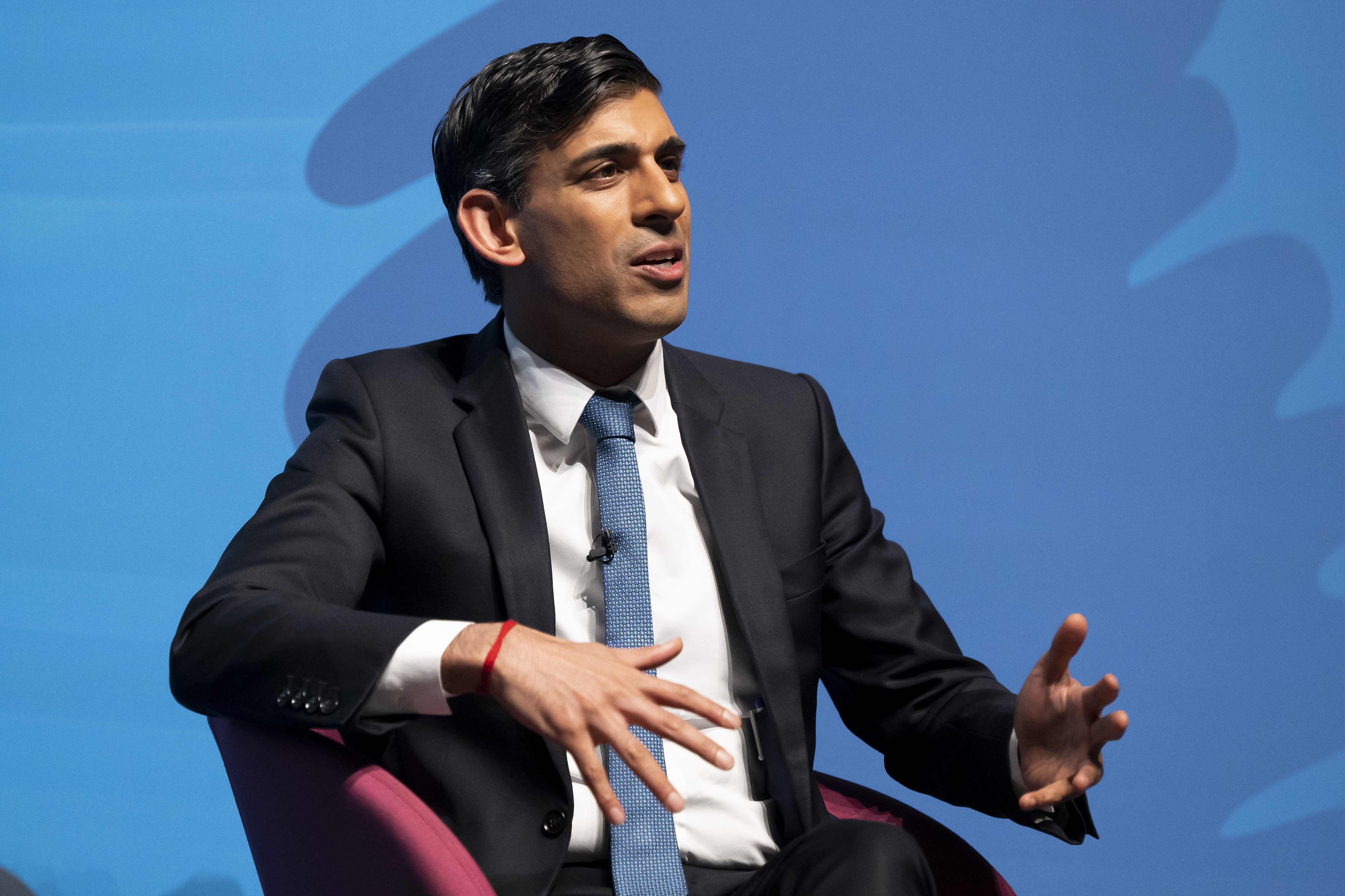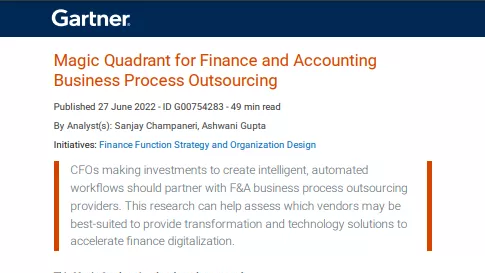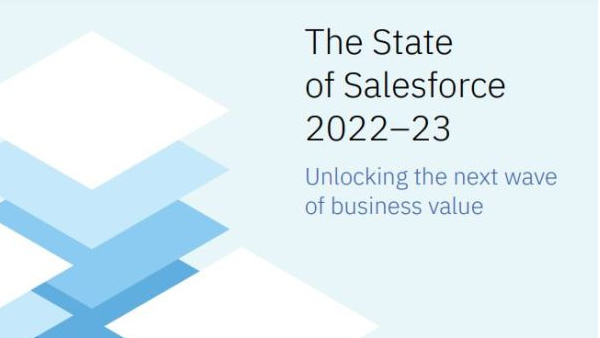Is Rishi Sunak’s ‘Unicorn Kingdom’ a reachable goal or a mere pipedream?
Plunging venture capital investment and warnings over high-growth company support raise doubts over the ‘Unicorn Kingdom’ ambition


Last week Rishi Sunak told attendees at the Business Connect conference in London that he was “unashamedly pro-business” while pushing the government’s latest buzzword, ‘Unicorn Kingdom’.
The new term, which admittedly prompted a collective cringe-induced grimace throughout the UK tech ecosystem, does appear bold and ambitious.
Sunak explained that the government’s latest attempt to accelerate growth in the UK tech sector centers around drawing upon expertise from Silicon Valley in an attempt to embed its lauded entrepreneurial spirit across the UK ecosystem.
“We just launched a campaign in Silicon Valley,” he said. “Just talking about our companies, what they were doing. Some of our ministers were out there the other week.”
"It was a huge success. It was called Unicorn… what was it called? ‘Unicorn Kingdom’."
The government has made no secret of its ambition to become the ‘next Silicon Valley’ in recent months as it looks to position the country as a leading global tech economy.
But while slogans like ‘Unicorn Kingdom’ and aggressive marketing of the UK tech sector seem proactive on the surface, if one were to chip away at the veneer of British tech exceptionalism, the current outlook appears rather concerning.
Get the ITPro daily newsletter
Sign up today and you will receive a free copy of our Future Focus 2025 report - the leading guidance on AI, cybersecurity and other IT challenges as per 700+ senior executives
Venture capital decline raises eyebrows
Recent analysis of the state of venture capital investment in the UK shows that the industry is in a precarious position. And while the UK ecosystem isn’t unique in witnessing a decline in VC funding, the numbers should be a cause for concern.
RELATED RESOURCE

Create intelligent, automated workflows with F&A business process outsourcing providers
A total of £2.9 billion ($3.6 billion) was raised by UK firms in the opening three months of the year, statistics show. This quarterly funding rate marks the lowest raised by companies in a single quarter since 2020, and is “significantly down” on the £12.3 billion ($15.2 billion) raised in Q1 2022.
Additionally, deal volumes were also “muted”, KPMG revealed, with just 402 deals recorded across the quarter. This marks the smallest number of deals completed since KPMG launched its Venture Pulse report.
With UK tech companies experiencing acute pressure from the decline in venture capital of late, the prime minister’s ambition could find itself on rocky ground in the months ahead.
Furthermore, if it’s a unicorn kingdom that the government seeks to build, then a similar analysis of the current UK tech landscape raises yet more concerns.
Unicorn kingdom or unicorn winter?
In its final industry overview report before closure in March, Tech Nation warned that the country could be on the cusp of a ‘unicorn winter’ due to a lack of support for high-growth companies operating across the ecosystem.
It found that 2022 saw a decline in the rate of unicorns created, with just 4% growth across the year. This, the report noted, marked a ten-fold decrease in the number of unicorns created between 2020 and 2021.
A key contributing factor for this looming unicorn winter, Tech Nation suggested, was that the government has failed to provide greater support for high-growth startups amid a significant economic slowdown.
The former industry champion called for the government to create the “right conditions” to facilitate the creation of tech unicorns and enable companies and founders to thrive.
This included greater support for founders pursuing late-stage exits, addressing current gaps in access to finance for startups and scale-ups, and a sharpened focus on attracting and retaining industry talent.
The issue of scale-up support was once again highlighted by tech leaders in a recent virtual Q&A with Sunak on LinkedIn.
Leaders at a range of top UK-based firms, including Monzo, raised concerns over government-backed support for overseas expansion and support mechanisms that enable companies to scale up.
This in itself suggests that many industry stakeholders harbor some doubts over the direction of support across the tech ecosystem.
In the same week, the government was forced onto the offensive following the CMA’s decision to block Microsoft’s multi-billion-dollar acquisition of Activision on competition grounds.
While the CMA’s ruling was widely expected by a host of industry analysts, the incident sparked a war of words with Microsoft in which the company questioned whether the UK was an attractive proposition for tech companies.
Microsoft president Brad Smith told BBC News that the decision was “bad for Britain” and suggested that this highlighted a diminishing reputation for the UK with regard to tech investment.
“There’s a clear message here,” he said. “The European Union is a more attractive place to start a business if you want some day to sell it. The English Channel has never seemed wider.”
A spokesperson for the prime minister countered Smith’s claims, noting that they were “not borne out by the facts”.
“Last year the UK became the third country in the world to have a tech sector valued at $1 trillion, behind only China and the United States in terms of investment.”
Silver linings for UK tech
Smith’s reactionary comments were expected given the circumstances. However, the government’s retort makes a valid point - the UK is still a leading European tech economy and an attractive proposition for startups and founders.
In recent years, there’s no doubt that the UK has cultivated a reputation as one of the world’s leading tech economies, ranked only behind China and the United States for venture capital investment.
RELATED RESOURCE

Unlocking the next wave of business value
Last year saw UK tech companies continue to raise investment at near-record levels despite obvious economic hurdles. Across the year, the industry raised £24 billion ($30 billion), more than France and Germany combined.
Similarly, the UK has produced more than 400 high-growth startups since 2000, including more than 145 unicorns and 237 ‘futurecorns’, according to Q4 2022 figures from Dealroom for the government.
Tech Nation pointed out in March that the number of futurecorns also increased by 45% between 2021 and 2022, further underlining the fact that the tech ecosystem continues to produce dynamic companies - and this shows no sign of stopping.
The UK could experience a “glut” of unicorns to come, largely due to the fact that many futurecorns were “well poised to gain value” in the future. This highlights the effectiveness of the UK at supporting companies to scale.
All that’s required thereafter is to continue support once companies reach the high end of the value spectrum, Tech Nation said.
Putting aside the prime minister’s rather cringeworthy statements around creating a ‘unicorn kingdom’, the ambition there is admirable.
Fostering closer ties with Silicon Valley and its breadth of expertise will undoubtedly benefit UK tech stakeholders and aligns well with an ongoing vision to frame the British ecosystem in a similar light.
And while there are lingering concerns about the impact of the current economic downturn on the UK tech ecosystem, the maturity of the industry at present stands it in good stead to weather the ongoing storm.

Ross Kelly is ITPro's News & Analysis Editor, responsible for leading the brand's news output and in-depth reporting on the latest stories from across the business technology landscape. Ross was previously a Staff Writer, during which time he developed a keen interest in cyber security, business leadership, and emerging technologies.
He graduated from Edinburgh Napier University in 2016 with a BA (Hons) in Journalism, and joined ITPro in 2022 after four years working in technology conference research.
For news pitches, you can contact Ross at ross.kelly@futurenet.com, or on Twitter and LinkedIn.
-
 Bigger salaries, more burnout: Is the CISO role in crisis?
Bigger salaries, more burnout: Is the CISO role in crisis?In-depth CISOs are more stressed than ever before – but why is this and what can be done?
By Kate O'Flaherty Published
-
 Cheap cyber crime kits can be bought on the dark web for less than $25
Cheap cyber crime kits can be bought on the dark web for less than $25News Research from NordVPN shows phishing kits are now widely available on the dark web and via messaging apps like Telegram, and are often selling for less than $25.
By Emma Woollacott Published
-
 Starmer bets big on AI to unlock public sector savings
Starmer bets big on AI to unlock public sector savingsNews AI adoption could be a major boon for the UK and save taxpayers billions, according to prime minister Keir Starmer.
By George Fitzmaurice Published
-
 UK government targets ‘startup’ mindset in AI funding overhaul
UK government targets ‘startup’ mindset in AI funding overhaulNews Public sector AI funding will be overhauled in the UK in a bid to simplify processes and push more projects into development.
By George Fitzmaurice Published
-
 UK government signs up Anthropic to improve public services
UK government signs up Anthropic to improve public servicesNews The UK government has signed a memorandum of understanding with Anthropic to explore how the company's Claude AI assistant could be used to improve access to public services.
By Emma Woollacott Published
-
 The UK’s AI ambitions face one major hurdle – finding enough home-grown talent
The UK’s AI ambitions face one major hurdle – finding enough home-grown talentNews Research shows UK enterprises are struggling to fill AI roles, raising concerns over the country's ability to meet expectations in the global AI race.
By Emma Woollacott Published
-
 US government urged to overhaul outdated technology
US government urged to overhaul outdated technologyNews A review from the US Government Accountability Office (GAO) has found legacy technology and outdated IT systems are negatively impacting efficiency.
By George Fitzmaurice Published
-
 Government urged to improve tech procurement practices
Government urged to improve tech procurement practicesNews The National Audit Office highlighted wasted money and a lack of progress on major digital transformation programmes
By Emma Woollacott Published
-
 Government says new data bill will free up millions of hours of public sector time
Government says new data bill will free up millions of hours of public sector timeNews The UK government is proposing new data laws it says could free up millions of hours of police and NHS time every year and boost the UK economy by £10 billion.
By Emma Woollacott Published
-
 Online Safety Act slammed by rights groups as bill gains royal assent
Online Safety Act slammed by rights groups as bill gains royal assentNews The Online Safety Act has been described as a veiled attempt to secure access to encrypted messages
By Rory Bathgate Published